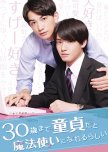
Burn the wicked rich with 95% vodka, literally
This film takes we, the audience on a journey to witness something grotesquely beautiful.It goes from one train wreck to another train wreck and a couple more incoming.
This film spares no one, not even the kids.
Kiritani was a man who abided the law and bounded by societal expectations.
A man who had a stable job, a normal marriage, a lost ambition and few other secrets kept from his spouse.
He became a man who was once fear of his vulnerability - then shines the most when he weaponised his fear and vulnerability.
Through the eyes of Kiritani who was a victim, survivor, then offender - was his act of revenge justifiable?
This is up to the audience to think.
A dead man can no longer think; well at least someone had a good time in the woods. Heh.
The story plot, cinematography, actors’ performances made this film feel both disgustingly raw and beautifully organic.
Rap scenes and film soundtracks are mesmerising and worth to rewatch.
As an audience, I felt as involved as a bystander.
A bystander who is waiting for everything to collapse, observing a person self-destruct and a madness ensures.
That is how this psychologically complex film felt.
Esta resenha foi útil para você?

Local country gays breaking free from Brokeback Mountain story trope
This rare gem reminded me of a queer British film "God's Own Country" directed by Francis Lee in 2017. However Restart is so much milder than G.O.C, as this film mainly explores on Mitsuomi's character development and his interaction with local people in his hometown.The resemblances of both films: The chilly picturesque countryside scenic. The use of warm lighting in some titular scenes and soft instrumental music. The gradual transition from cold to warm atmosphere as the story goes. The relationship of main country gay with his parents. The main country gay struggling with life and unwillingly getting involved with another country gay. The gentle coaxing and nurture of one country gay towards the main country gay into submission. The cosy nesting of one country gay's head onto the other country gay's shoulder in a bus/train ride home.
Yuuki Furukawa and Ryo Ryusei's acting as Mitsuomi and Yamato felt rather natural and viewers could easily relate or empathise with their characters. Yuuki's version of Mitsuomi is a resemblance of the manga version (in both mannerism and the voice). Ryo's version of Yamato is more of a goofy sunshine-boy country bumpkin that enlightens every scene possible. The acting from other actors are great as well and their interaction with both mains blend in easily.
All in all, the soundtracks suit accordingly to most scenes and the story plot is well-timed. Although with some minor plot changes and introduction of new characters, the film allows Yamato's backstory with more depth and Mitsuomi's conversation with his father more heart-warming - it is a faithful adaptation of the manga and a realistic representation of how younger generations nowadays feel towards themselves, their family responsibility and the societal expectation.
This film deserves a sequel as it should be.
Esta resenha foi útil para você?

Untold theory of the last scene
Beautifully wicked drama that depicted tragic things happened to tragic people.Great acting from all casts. All in all, there’s no good and bad people in this story. People did what they did out of spite and to redeem themselves.
For those who didn’t understand last ending scene between Mayuko and Naomi, this review will be mainly wrapped around that particular scene.
The Ending Scene (Episode 4):
Naomi asked Mayuko to watch him swims to the buoy. As he walked to the shore, Naomi turned around for one last look at Mayuko whilst pointing his finger into the distance before swimming into the ocean.
He was mimicking the same scene performed by Tadzio in a 1971 film “Death in Venice” directed by Luchino Visconti.
The significance of this film’s ending scene and the director himself are important to Mayuko later on.
To summarise this film, Tadzio had a pursuer called Aschenbach who secretly followed him around Venice as his obsession with Tadzio’s beauty grew stronger. Towards the film’s ending, Aschenbach was stuck in the same situation as Mayuko, because both were unwell due to health conditions.
In this same scene, Tadzio turned around looking at Aschenbach and pointing into the distance (the same way as Naomi did to Mayuko). Aschenbach who was dying, yearned for Tadzio and still mesmerised by the boy’s beauty before passing away while trying to reach out to Tadzio.
[Updated in 2024: abovementioned cinematic parallels - https://easterndelights.tumblr.com/post/759516469940879360/kna-div ]
Based on both scenes, Tadzio was a symbol of youth, innocence and adolescence beauty to Aschenbach; in the same way that Naomi symbolised as a perfect ideal man to Mayuko.
In episode 1, Mayuko’s father praised Mayuko for having a keen eye for something beautiful when he saw the necklace that Mayuko found from the beach. As Yuki took that necklace from her, Mayuko took something beautiful from Yuki 30 years later.
When Naomi was born, Mayuko held baby Naomi and saw the beauty in him. She told Yuki that she might take him away, but Yuki never took that matters seriously.
Over the course of 20 years, Mayuko moulded Naomi’s personality and groomed him into becoming her ideal man. Naomi would have knew everything about Mayuko at this point - like he knew her favourite french poets are Verlaine and Baudelaire, and her obsession with the novel of “Chijin no Ai”.
After Naomi was freed from both of his parents, his wish to always be together with Mayuko came true - albeit it came with a hefty price.
Back in episode 1, Mayuko brought up a film called “The Leopard”, into a conversation with her mother where she reminisced the beautiful castle scene. That particular film was directed by Luchino Visconti.
Naomi might have also learned about Mayuko’s love for Visconti’s films, although the viewers never get to witness this scene.
Back to the ending scene, Naomi dressed Mayuko in all-white before heading to the beach. It was coincidentally the same as how Aschenbach wore all-white to see Tadzio for the last time.
When Naomi was pointing into the distance mimicking Tadzio's scene, Naomi wanted to show Mayuko that he was never the Naomi from “Chijin no Ai” and Mayuko was not his captor.
Instead, he is the Naomi that always yearned for Mayuko and her affection, despite all tragic things happened to Mayuko because of Yuki.
Mayuko was conflicted with her feelings at first, but did reciprocated and gave in to the decision to be with Naomi.
With Yuki completely gone from both of their lives, there will be no more malice and destruction as peace ensured.
Despite being bedridden and in a vegetative state, Mayuko regained her long forgotten youth and innocence by starting anew with Naomi.
When Naomi was tributing his Tadzio to Mayuko, it was a sign to trigger Mayuko’s memory telling her to yearn for him, as he will always be waiting for her return.
In the end, Mayuko understood what Naomi was signalling to her (hence she smiled).
Esta resenha foi útil para você?

Sugar, spice and everything nice - Key secrets to a quaint midnight drama’s success
This review will be mainly about the main characters and actors.There is something about Cherry Magic that is definitely binge-watch and rewatch worthy. No villains, no fuss and minimal angst throughout. The opening and ending songs are nice, although the overall soundtrack wasn’t as memorable to me but somewhat fits with the drama’s quirks.
The love between colleagues, friends and partners presented in this drama is as universal as it gets. It lets the viewers know it is okay to have no romantic attachment to anyone as long as you valued and be content with yourself. It lets the viewers know it is okay to shamelessly chasing your dreams as well as abandoning your past dreams in pursuit of something new and exciting. It lets the viewers know the importance of mutual consent, patience, understanding and good communication when it comes to loving someone who valued less of themselves.
As the actors of Kurosawa and Adachi, Machida Keita and Akaso Eiji put a lot of thoughts into how their actions correspond with each other whether those scenes are improv or not. Most of the scenes were delivered well non-verbally and voiceovers were added in later to showcase Adachi’s mind reading ability. Viewers who rewatch would definitely notice the slight touches added to the characters throughout the episodes.
Kurosawa is the character that some viewers could easily relate to if they have yearned and loved someone the same way Kurosawa did. Machida’s rendition of Kurosawa did bore some resemblance from Oliver in “Call Me By Your Name” - both characters possessed the same gentlemanly charms, the earnest to love wholeheartedly and the unfortunately good facade to maintain people’s expectations. It seems Machida might have drew some inspiration from CMBYN. Be rest assured that Cherry Magic’s screenwriter didn’t pull out an Oliver move in the end, or else the viewers would have gone full Elio mode.
Machida did micro-expression quite well and delivered his scenes with proper tension and impeccable chemistry when it comes to Akaso. It was a joy to see Machida’s soft and courteous mannerism after seeing many of his aggressive roles in other LDH-produced films or series.
Kurosawa could have easily become many viewers’ favourite and could have completely overshadow Adachi in this drama.
That’s what I have predicted initially and luckily that didn’t happened.
Akaso’s rendition of Adachi at first seemed to be a bit overly comical in first few episodes but gradually improving as Adachi gets closer with his peers. Some of Adachi’s comical scenes reminded me of Haruta from “Ossan’s Love” - as it turns out both actors are from the same talent agency.
Nonetheless there seemed to be some bits of Akaso in Adachi. In contrast with some of Akaso’s past acting roles, his other roles didn’t feel the same way as Adachi did. It felt as if Akaso has fully immersed himself in the role of Adachi, delivering Adachi’s vulnerability in a way that shines most during these crucial scenes with Machida (Note: confession scene in Episode 7; breakdown scene in Episode 11; rooftop scene in Episode 12).
Akaso’s innate boyish flairs and doe-like eyes emote awkwardly shy Adachi adorably despite being dressed less fashionable than his peers. Seeing how Adachi wavers emotionally and gradually becoming more braver and livelier because of the people around him is what made this drama worthwhile til the end.
Here’s my 2 cents to wrap up this review, there are some things that screenwriter, director or producer have to take note of when it comes to maintaining their viewers’ expectation. Teasing viewers with certain scenes that didn’t end up being delivered in the end could easily hampered with viewers’ overall experience of the drama. It is better not to tease at something that was never intended to be shown or included in script in the end.
Being able to show Adachi’s bit of validation towards Kurosawa like a peck on the forehead would have been a full circle to this story. Plus it could easily make my queer heart weak and this drama could have been an easy 10.
Special thanks to everyone who were involved in the making of this drama in the amidst of pandemic. It was enjoyable to have something endearing to look forward to every week.
Esta resenha foi útil para você?

Let’s talk about Mhok
As this series highlights on Day’s life, I hope this review gives some insight on Mhok’s characters and my brief thoughts on episode 12 (spoiler-free).From what I gathered throughout the episodes, the Last Twilight is not only the story of a blind man (Day) who feared of society’s perception because he was once a beloved national athlete.
This is also the story of an orphan (Mhok) who struggled to integrate back into the society because he was once a convict with unresolved trauma.
I would like to commend on Mhok for his love, support, commitment and devotion in Day's day-to-day life. He rebuilds Day’s confidence (like a mechanic) and helping Day to face the outside world, once again as a blind man.
Since the series begins with Mhok’s flawed and woeful past, I feel this series should ends with Mhok redeems himself by forgiving himself over his past.
Mhok is a person who tries his best for others despite being too tough on himself. He is a person with tough exterior but also with insecurities which mainly kept to himself - e.g: how society treated him as a convict, trauma over the lost of family member, power imbalance and social status between him and Day, the feeling of inferiority with his capability to provide and care for Day.
Mhok’s issues should be explored on later episodes, however this can only happen - if and only if Day reciprocates by trying to understand where Mhok’s insecurities stem from.
Maybe an extra episode to explore this will be suffice?
In my opinion, this series should ends with a relatable yet heartfelt lesson of how these two unfortunate characters heal their relationship. And also for Mhok to absolve himself over his past, giving himself the closure he needed the most.
[note of reference: Moonlight Chicken (2023) explored the complexity of different characters overcoming the loss of loved ones and going through phases of denial, grief, healing and acceptance - e.g.: ideally the relationship of Alan and Wen, Jim and Beam, Gaipa and his mom/ Jim].
About the second half of episode 12, perhaps the screenwriter and director were hoping to dedicate this part to a specific audience - e.g.: the blind community.
This might be why episode 12 has a fairytale-like ending, where there might be a chance in life that the intended audience could once see again.
Nonetheless the cinematography, soundtrack and locations chosen for this series are equally pleasing and beautiful.
Esta resenha foi útil para você?




